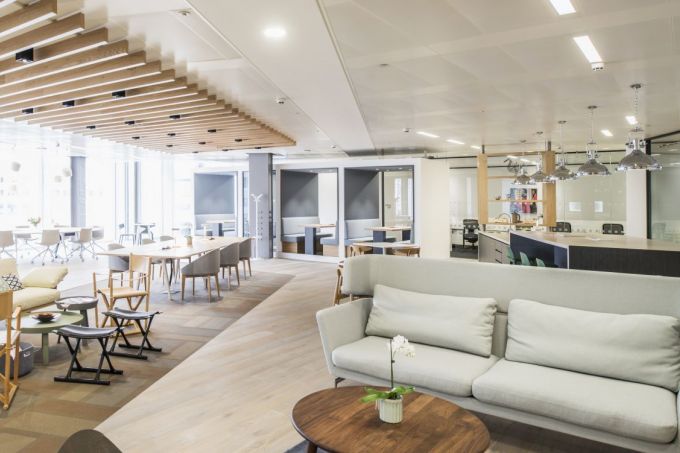Imagine you’ve found the perfect hire, only to learn she turned down the job because her daily commute would just be too long. Or you’re looking to expand your premises, but since there’s no space left in the same building, you’re forced to consider a pricey relocation.
These are familiar pain points for Singapore’s corporates, especially amid today’s talent shortage and the tight office supply in the Central Business District. But with technology putting devices in everyone’s pockets and bags, cultivating a flexible working policy has eased these woes.
In fact, opting for flexible workplaces — professional yet agile spaces across the island on short and customisable leases — helps businesses meet their ever-evolving business needs, attract talent and do good for the planet. With 75% of respondents in flexible workspace provider IWG’s 2019 Global Workspace Survey viewing flexible working as the new normal, it is clearly also the future-forward way to go.
In the age of disruption, it can be difficult for companies to predict their resource needs and plan too far ahead. The traditional years-long office lease has become incompatible with the reality that businesses need to be able to scale up and down quickly to meet ever-changing business imperatives.
The leases of flexible workspaces are often not only shorter, but can be customised to meet a more ad-hoc arrangement, and therefore these spaces goes hand in hand with companies’ needs to become more agile and cost-efficient.
That flexible working is good for business is validated by IWG’s survey: 65% indicated that using flexible workspaces helps them to reduce capital expenditure and operating expenditure, manage risk and consolidate their portfolio.
Flexible working can be a strong talent magnet for companies as well since it helps cut down or even entirely eliminate time and energy wasted travelling to and fro offices and outside meetings. But companies that prefer its workers operate from a more professional set-up than their dining table find flexible offices as an option to still provide employees freedom to choose where they want to do their best work.
For example, IWG’s Spaces allows its members to use any of their professionally set-up locations across the island. Having this ability to choose their work settings and how they wish to work is popular among workers.
IWG found in its survey that 82% of people would choose a job that allowed flexible working over a job that didn’t, all other things being equal. For companies, having an energised and happier workforce pays off. IWG’s survey also indicated that 85% of respondents have seen increased productivity as a result of its greater flexibility as well.
Flexible working allows companies to do good for the planet while conducting day-to-day business. After all, workers can reduce their carbon footprint with less commuting, while companies get to consume exactly what they need since they are leasing space and using resources based on their current business levels.
In other words, companies do not have to power up a workspace from 9 to 5 every day, just because they have paid for it. Technology can also help with allocating resources more efficiently and minimising wastage.
Modern flexible working spaces are often equipped with “proptech” — so defined as the application of technology to refine processes in the property sector — such as online meeting room booking systems, cutting down on laborious paperwork. It pays to employ a workforce that’s less tied up in everyday tasks and more focused on growing the business.
Flexible workspace already makes sense today, and is the way of work of the future with more employers waking up to the need to let go of rigidity and putting their employees and business needs first.
With the cost efficiencies, earth-friendly benefits and lifestyle and productivity improvements, adopting flexible working and flexible offices puts us on the right path to a more progressive, flexible way of making our businesses thrive. Our personal lives, our budgets and our planet will thank us for it.
By Business Times

